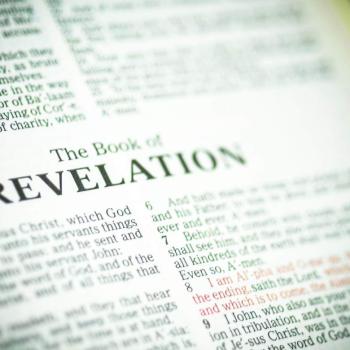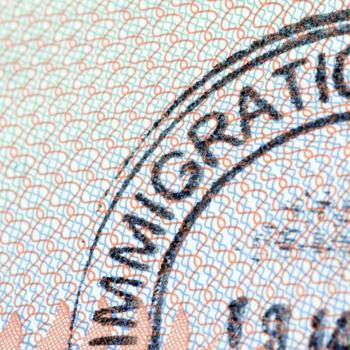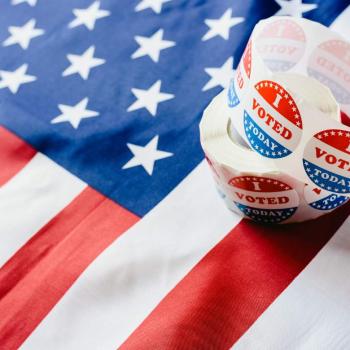
Labels, in and of themselves, are neither good nor bad. They are pointers, and, when properly used, can help us navigate the world and communicate with one another. When we use them to name cities and streets, they help us get from one place to another. When we use them to name menu items, they help us order the correct meal.
However, labels can be used—and often are—in such a way so as to limit what something or someone is and is not. That is, they are often used as nouns rather than as adjectives, as if the label is the essence of what someone is, rather than a mere pointer. Regarding this, Soren Kierkegaard warned, “Once you label me, you negate me.” This seems especially true in today’s world. Republican. Democrat. Independent. Libertarian. Socialist. Christian. Buddhist. Tall. Short. Fat. Skinny. And on and on it goes . . . labels used to negate who we truly are as “human.”
We’ve grown so accustomed to seeing one another as nothing but a label that we’ve essentially dehumanized them in the process. And our culture has suffered because of it. We are at a point and time in history that we’re doing nothing but yelling at “the other side,” whatever that other side may happen to be. And what has that done for us other than create scapegoats? Nothing good that I can think of.
But again, there is nothing wrong with using our pointers, so long as we realize the pointer isn’t the real thing. I live in Chico, California but realize the written form—C-H-I-C-O-C-A-L-I-F-O-R-N-I-A—isn’t the actual city. Likewise, I call myself a “Christian” (on most days)—even though some of my interlocutors would vehemently disagree—but realize that a “Christian” isn’t a real thing. It only points to something else. In other words, it’s an adjective that points at the noun, a describer that points at the “is-ness” of the real thing, the how of life rather than the what in life. Buddhist teacher Noah Rasheta offers the following analogy:
The reality is that no matter how hard I try, I can’t “be” a Buddhist, or a Christian, or an anything, because those aren’t “things” to be. We already are something; we’re human. When we learn to view our own labels and perhaps more importantly, the labels we assign to others as adjectives instead of nouns, it will be like talking to someone and realizing that “I am wearing a blue shirt” and “you are wearing a red shirt” but the color of our shirts doesn’t make us who we are, it’s just part of how we are right now at this specific moment of being human.
If we started using our labels in this manner, we would likely begin to see one another in a strikingly different way. I’ll go so far as to say that we would start seeing each other, not as the labels we attach to them—labels that tend to divide and separate—but as fellow human beings, all a part of one big family. And I’m guessing our approach to those who happen to wear different colored shirts would be wrought with empathy and compassion. In essence, it would be a new “way” of seeing and being.
Both Jesus and the Buddha emphasized a new way of seeing. And while each had their own cultural context and used different language to describe this “way,” both stressed the importance of non-grasping (the path of liberation from suffering in Buddhism) and of emptying one’s self (the kenotic path from Philippians 2:7). This would include not grasping at the labels we tend to describe ourselves and others with. It’s a form of non-judgment, something Jesus iterated on numerous occasions (see Matthew 7:1–5; Luke 6:37–42).
Of course, many of my fellow Christians would retort and suggest that it is of vital importance to describe Jesus Christ with the right labels. After all, our eternal fate hinges on this, or so we’re told. I guess the only thing I have to say about such a thing these days is that people in this frame of mind need to grow up. I don’t say that flippantly or as a slight of any kind. We all need to grow up. That is a huge part of what it means to have this human experience. Babies are not born with all the tools they need to flourish in life. They need to grow up. Likewise, religious thinking and the labels we grasp at are all a part of the process of eventually coming to a place where we transcend such things.
At the end of the day, it doesn’t really matter what labels we use to describe ourselves. Sure, it’s important to carry around a map in order to familiarize yourself with the terrain. But at some point, you won’t need the map any longer. When the Fellowship gets far enough down the Anduin River, they don’t continue to carry their canoes across the plains of Rohan. They leave them behind and recognize they are no longer needed. To that end, if you call yourself a Christian, or a Buddhist, or a Liberal, or a Conservative, that’s fine. Just realize that true transcendence involves moving past such labels to the real essence of what we are. We are human. We are one. And though we all come from different traditions, cultures, religions, and the like, we are, at our core, something much, much more.
Peace.













